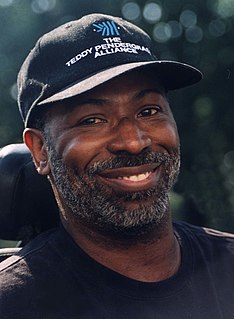A Quote by Tony Harrison
I've written on public matters, but I don't understand how anyone could tout me as a possible poet laureate when I wrote a poem on the abdication of King Charles III or about the sex life of the Royals... anybody who knew my work would know I'm not a contender.
Related Quotes
The true poem is not that which the public read. There is always a poem not printed on paper,... in the poet's life. It is what hehas become through his work. Not how is the idea expressed in stone, or on canvas or paper, is the question, but how far it has obtained form and expression in the life of the artist. His true work will not stand in any prince's gallery.
At this rate, I'd be lucky if I wrote a page a day. Then I knew what the problem was. I needed experience. How could I write about life when I'd never had a love affair or a baby or even seen anybody die? A girl I knew had just won a prize for a short story about her adventures among the pygmies in Africa. How could I compete with that sort of thing?
I just think that the world of workshops - I've written a poem that is a parody of workshop talk, I've written a poem that is a kind of parody of a garrulous poet at a poetry reading who spends an inordinate amount of time explaining the poem before reading it, I've written a number of satirical poems about other poets.
I certainly was surprised to be named Poet Laureate of this far-out city on the left side of the world, and I gratefully accept, for as I told the Mayor, "How could I refuse?" I'd rather be Poet Laureate of San Francisco than anywhere because this city has always been a poetic center, a frontier for free poetic life, with perhaps more poets and more poetry readers than any city in the world.
I can't understand how people can settle for having just one life. I remember we were in English class and we were talking about that poem by - that one guy. David Frost. 'Two roads diverged in a yellow wood-' You know this poem, right? 'Two roads diverged in a yellow wood, and sorry I could not travel both and be one traveler, long I stood and looked down one as far as I could, to where it bent in the undergrowth-" "I loved that poem. But I remember thinking to myself: Why? How come you can't travel both? That seemed really unfair to me.
A successful poem says what a poet wants to say, and more, with particular finality. The remarks he makes about his poems are incidental when the poem is good, or embarrassing or absurd when it is bad and he is not permitted to say how the good poem is good, and may never know how the bad poem is bad. It is better to write about other people's poetry.
I find myself absolutely fulfilled when I have written a poem, when I'm writing one. Having written one, then you fall away very rapidly from having been a poet to becoming a sort of poet in rest, which isn't the same thing at all. But I think the actual experience of writing a poem is a magnificent one.
I know who you are in your heart,' Andres said. 'That's all that matters.' And that was it. That was the moment. Now I knew how I would feel if I ever lost him. That was how you knew love. My mother had told me that. All you had to do was imagine your life without the other person, and if the thought alone made you shiver, then you knew.
I know that in a poem, even when the speaker is speaking from the poet's experience, there's always something that's borrowed, some authority that sits outside of the poet that the poem has claimed. There's a dramatic pitch that makes the speaker capable of saying something more courageous or stranger or simply other than what the poet would be able to say.




































